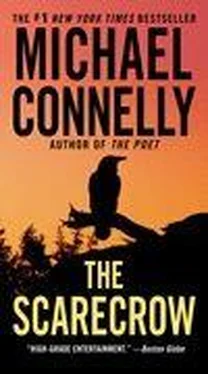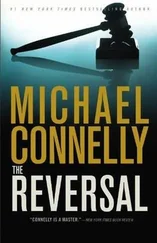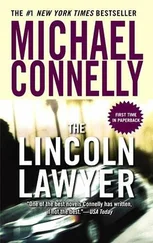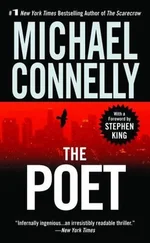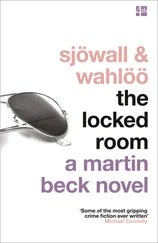“In December, right before Christmas.”
“And do you recall when you first met me?”
“It was after. I think March or April.”
“Then, how is it that you think I was paying for this apartment for you when I did not meet you until three to four months after you moved in?”
“Because you were meeting with the other lawyer, and he was the one who moved me in.”
“And which lawyer was that?”
“Sly. Mr. Fulgoni.”
“You mean Sylvester Fulgoni Jr.?”
“Yes.”
“Are you saying that Sylvester Fulgoni Jr. along with me is representing Mr. La Cosse?”
I pointed to my client as I spoke, and I asked the question with a reserved astonishment in my voice.
“Well, no,” she said.
“Then who was he representing when he supposedly moved you into this apartment?”
“Hector Moya.”
“Why did Mr. Fulgoni move you into an apartment?”
Forsythe objected, arguing that Fulgoni and the Moya case were not relevant. I, of course, took the opposite view of this in my response, citing once again the alternate defense theory I was presenting. The judge overruled and I asked the question again.
“Same thing,” Trina answered. “He wanted me to say Gloria Dayton told me that Agent Marco asked her to plant a gun in Hector’s hotel room.”
“And you’re saying that never happened, that Mr. Fulgoni made it up.”
“That’s correct.”
“Didn’t you testify a few minutes ago that you never heard of an Agent Marco, and now you say Mr. Fulgoni was feeding you testimony regarding him?”
“I didn’t say I never heard of him. I said I never met him and I never snitched for him. There’s a difference, you know.”
I nodded, properly chastised by the witness.
“Ms. Rafferty, have you received a phone call or a visit within the last twenty-four hours from a law enforcement officer?”
“No, not that I know of.”
“Has anyone attempted to coerce you into testifying the way you have today?”
“No, I’m just telling the truth.”
I had gotten it out to the jury as best I could, even if it was in the form of denials. My hope was that they would instinctively know that Trina Rafferty was the liar, that she had been pressured by someone to lie. I decided it was too risky to continue and ended the questioning.
On my way back to my seat, I whispered to Lankford as I went by.
“Where’s your hat?”
I kept moving along the rail until I got to Cisco. I leaned over to whisper to him as well.
“Have you seen Whitten?”
He shook his head.
“Not yet. What do you want me to do with Trina?”
I glanced back at the front of the courtroom. Forsythe had no re-cross, so the judge was dismissing Rafferty from the witness stand. Cisco had picked her up that morning at her apartment building and taken her the three blocks to court.
“Take her back. See if she’ll say anything.”
“You want me to be nice?”
I hesitated but only for a moment. I understood the threat and pressure people like Marco and Lankford could bring to bear. If the jury picked up on that, then her flip on the stand might be more valuable than if she had testified truthfully.
“Yeah, be nice.”
Over Cisco’s shoulder I saw Detective Whitten enter the courtroom and take a seat in the back row. He was right on time.
36
As the lead investigator on the Gloria Dayton murder, Detective Mark Whitten had attended most of the trial, often sitting along the rail next to Lankford. However, I had not noticed during the course of the proceedings the two acting much like prosecution teammates. Whitten seemed to keep to himself, almost aloof when it came to Forsythe, Lankford, and everyone else associated with the trial. During trial breaks I had seen him walking by himself back to the PAB. Once I had even seen him in Pete’s eating lunch by himself.
I called Whitten as my next witness. He had already testified for a day and a half during the prosecution phase of the trial. He had primarily been used by Forsythe to introduce evidence such as the video of the La Cosse interview. In a way, he was the narrator of the prosecution’s story, and as such, his testimony had been the longest by far of any witness in the case.
At the time, I had limited my cross-examination to aspects of the video, repeating many of the questions I hit Whitten with during the unsuccessful motion-to-suppress hearing. I wanted the jury to hear him deny that La Cosse had been a suspect the moment Whitten and his partner knocked on Andre’s door. I knew no one would believe that and hoped it would plant a seed of mistrust in the official investigation that would blossom during the defense phase.
I had reserved the right to recall him as a witness, and now was that time. I didn’t need to get a lot from him, but what I was going for was vitally important. It would be the fulcrum on which the case would pivot to the defense’s side of the equation. Whitten, who was in his midforties with twenty years on the job, was an experienced witness. He had a calm demeanor and spoke in a matter-of-fact tone. He was skilled at not revealing the hostility that almost all cops carry for the defense. That was reserved for times when the jury was not present.
After a few preliminary questions that would serve to remind the jury of his role in the case, I moved on to the areas I needed to explore. Defense work is about building foundations for the evidence and angles you want to introduce. That’s what I needed Whitten for now.
“Detective, when you testified last week, you spoke at length about the crime scene and what was found there, correct?”
“That’s right, I did.”
“And you had an inventory of that crime scene and what was found there, correct?”
“Yes.”
“And these were the victim’s belongings and property, right?”
“Yes.”
“Can you refer to that inventory list now?”
With the judge’s permission, Lankford brought the so-called murder book to Whitten. If he had been called by the prosecution, he would have normally taken the witness stand with the thick compendium of all investigative records tucked under his arm. Not bringing it with him to the stand when I called him was a little glimmer of that hostility he was so skilled at hiding.
Working off a copy of the list I had received in discovery, I continued.
“Okay, referring to the inventory list, I see no cell phone. Is that correct?”
“We did not recover a cell phone from the crime scene. That is correct.”
“Now, Mr. La Cosse explained to you, did he not, that he’d been on a call with the victim earlier that evening and that that conversation was the reason he went to her place in person?”
“Yes, that is what he told us.”
“But you found no phone in the apartment, right?”
“Right.”
“Did you or your partner try to find an explanation for this discrepancy?”
“We assumed that the killer took her phones as a means of hiding his trail.”
“You say ‘phones.’ There was more than one phone?”
“Yes, we determined that the victim and the defendant used a variety of throwaway phones to conduct their business. The victim also had a cell phone for private use.”
“Can you tell the jury what a throwaway phone is?”
“These are inexpensive phones that come with a limited number of minutes of call time. When you burn up the minutes, you throw the phone away or in some cases you can reload them with new minutes for a fee.”
“These were used because call records would be difficult to obtain by investigators if the phone was thrown away and you didn’t know where to start looking.”
“Exactly.”
“And this is how Mr. La Cosse and Ms. Dayton communicated in the course of their business, correct?”
Читать дальше
